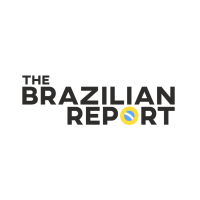Explaining Brazil Podcast: Brazil's Role on the Global Stage, with Brazil Institute Director Paulo Sotero


This podcast episode is part of the Brazil Institute's ongoing collaboration with the Brazilian Report.
About the episode: Since President Jair Bolsonaro took office on January 1, Brazil has made its way back into global headlines, albeit for the wrong reasons. In fairness, though, Brazil’s image problem abroad is far from being caused by Jair Bolsonaro alone. Instead, it is the result of an erratic foreign policy without continuity and clear objectives for the global stage.
On this episode, the Brazilian Report's Gustavo Ribeiro speaks with:
- Paulo Sotero, director of the Wilson Center’s Brazil Institute and has covered the evolution of Brazil-U.S. relations for nearly 40 years as a journalist and analyst. A frequent guest commentator for the BBC, CNN, and NPR, Mr. Sotero has taught at Georgetown University and The George Washington University.
- Daniel Buarque, a Brazilian journalist and author of the book Brasil, País do Presente (in English: Brazil: Country of the Present). He is currently completing a doctorate on Brazil’s global image at King’s College University in London, and previously wrote for Brazilian publications including G1, Valor Econômico, and Folha de S.Paulo.
Listen and subscribe to the Brazilian Report's podcast from your mobile device:
Spotify | Apple Podcasts | SoundCloud | YouTube | Google Podcasts | Deezer
Like the content? Subscribe to the Brazilian Report using the discount code BI-TBR19 to get 20 percent off any annual plan.
Guests


Brazil Institute
The Brazil Institute—the only country-specific policy institution focused on Brazil in Washington—aims to deepen understanding of Brazil’s complex landscape and strengthen relations between Brazilian and US institutions across all sectors. Read more

